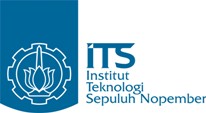Actors in Preservation Local Wisdom: Mangure Lawik for Sustaining Marine Resources
Abstract
Keywords
Full Text:
PDFReferences
M. S. Uddin, C. E. Haque, D. Walker & M. U. I. Choudhury, “Community resilience to cyclone and storm surge disasters: Evidence from coastal communities of Bangladesh”, Journal of Environmental Management, 2020, 264(2020), 110457.
A. Maulidyna, B. S. Hartawan, H. N. Agustin, A. N. Irfan, A. Septiasari, R. Utina & A. D. Setyawan, “The role of local belief and wisdom of the Bajo community in marine conservation efforts”, J. Bonorowo Wetlands, 2021, 11(1), 48-63.
I. Carter. Human Behavior in the Social Environment “A Social Systems Approach”. New York: Routledge, 2017, pp. 1-325.
M. Gluckman. Politics, Law and Ritual in Tribal Society. New York: Routledge, 2017, pp. 1-405.
Yuliana, “The dynamics of the socio-cultural life of coastal communities”, Journal of Aquaculture Science, 2021, 6(IS), 28-36.
C. Chan, D. Armitage, S. M. Alexander & Donovan, “Examining linkages between ecosystem services and social wellbeing to improve governance for coastal conservation in Jamaica”, Journal of Ecosystem Service, 2019, 39 (2019).
A. Satria, Y. Matsuda & M. Sano, “Questioning Community Based Coral Reef Management Systems: Case Study of Awig-Awig in Gili Indah, Indonesia”, Journal of Environment, Development and Sustainability, 2016, 8(2016), 99-118.
D. P. R. Dewi & I. K. Sujana, “The effect of organizational commitment, organization culture based on Tri Hita Karana and Awig-Awig protection on the performance of Lembaga Perkreditan Desa in Bangli Regency”, American Journal of Humanities and Social Sciences Research (AJHSSR), 2021, 5(1), 168-175.
W. Yulianingsih, F. Simangungsong & M. N. Apriyani, “Awig-awig effectiveness in protection of marine natural resources, indigenous communities of Lombok”, International Journal of Educational Research & Social Sciences, 2021, 2(4), 930-937.
A. E. Delanay & K. Frangoudes, “Coastal and Maritime Cultural Heritage: from the European Union to East Asia and Latin America”, Journal of Maritime Studies, 2024, 23 (26), 1-10.
J. Creswell. Educational Research: Planning, Conducting and Evaluating Quantitative and Qualitative Research. London: Pearson, 2015, pp.
Sugiyono. Quantitative, Qualitative, and R&D Research Methods. Bandung: Alfabeta. 2019.
M. B. Miles & A. M. Huberman. Qualitative Data Analysis: A Sourcebook of New Methods. Jakarta: UI Press.1992.
S. M. Reed, A. Graves, N. Dandy, H. Posthumus, K. Huback, J. Morris & L. C Stringer, “Who's in and why? A typology of stakeholder analysis methods for natural resources management”, Journal of Environmental Management, 2009, 90 (-), 1933-1949.
T. L. Aprilani, M. Sayuti, H. K. Liestiandre, M. A. Pranasari, S.E. Fitri & H. Saksono, “Strengthening Rembitan Village MSMEs through local wisdom based city branding: A holistic approach to tourism development "weaving village"”, Journal of Migration Latters, 2023, 20(5), 1057-1067.
Indonesian Government Regulation No. 87 of 2020 concerning policies or technical regulations relating to the management of marine and fisheries resources.
A. L. Friedman. Stakeholders: Theory and Practice. New York: Oxford University Press, 2006.
S. M. Reed, A. Graves, N. Dandy, H. Posthumus, K. Huback, J. Morris & L. C Stringer, “Who's in and why? A typology of stakeholder analysis methods for natural resources management”, Journal of Environmental Management, 2009, 90 (-), 1933-1949.
S. M. Reed, S. Vella, E. Challies, J. D. Vente, L. Frewer, D. H. Ries, T. Huber, R. K. Neumann, E. A. Oughton, J. S. D. Ceno & H. V. Delden, “A theory of participation: what makes stakeholder and public engagement in environmental management work?”, Journal of Restoration Ecology, 2017, 26(1), 7-17.
M. Reed, A. Graves, N. Dandy, H. Posthumus, K. Huback, J. Morris & L. C Stringer, “Who's in and why? A typology of stakeholder analysis methods for natural resources management”, Journal of Environmental Management, 2009, 90 (-), 1933-194.
DOI: http://dx.doi.org/10.12962%2Fj25481479.v10i1.22614
Refbacks
- There are currently no refbacks.
 |  |  |  |
| |  |  |
|
|
|
|
|
P-ISSN: 2541-5972
E-ISSN: 2548-1479
IJMEIR journal published by Department of Marine Engineering, Faculty of Marine Technology, Institut Teknologi Sepuluh Nopember Surabaya Indonesia under licenced Creative Commons Attribution-ShareAlike 4.0 International Licence. Based on https://iptek.its.ac.id/index.php/ijmeir/


1.png)
